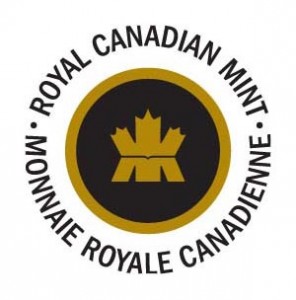Training Programs
We believe training can serve to eliminate conflict and have developed many programs to serve this vision. Our courses range from delivery at the employee level up to specialized initiatives for Management, and dispute resolution training.
Our Investigation training programs are designed to equip your management, supervisors, human resource staff and internal investigators with a proven process. We have trained thousands of investigators in our many years in the field. With over 30 years of investigation experience and dealing with conflict in Canadian workplaces (in every industry) – participants can expect a powerful and realistic learning environment.
Our Investigation workshops are offered in various cities across Canada. You may also choose to bring our experts to your organization – all our programs can be delivered on site and tailored to your needs.
Seating is limited. Hill Advisory Services will provide you with a confirmation to guarantee your seat. Payment is required prior to attending, an invoice will be supplied with your confirmation. You can register for one of our classes here.Register for one of our classes
Need a Customized Training Program?
Should you wish to tailor a program to meet your specific needs, or request a quote on hosting one of our programs in-house, our experienced facilitators would be pleased to discuss these options. You can contact us at (204) 831-7661, or email Dylan Hill or Cam Hill
Upcoming Events
Virtual (CST) – Investigation Level 1 & 2
Level 1 – August 19-21, 2024
Level 1 & 2 – August 19-23, 2024
Level 2 – August 22-23, 2024
*Prior attendance in Level 1 requiredLive events hosted via Zoom
Read moreCalgary, AB (Classroom) – Investigation Level 1 & 2
Level 1 – October 21-23, 2024
Level 1 & 2 – October 21-25, 2024
Level 2 – October 24-25, 2024
Read more
*Prior attendance in Level 1 requiredVIRTUAL (CST) – INVESTIGATION LEVEL 1 & 2
Level 1 – November 18-20, 2024
Level 1 & 2 – November 18-22, 2024
Level 2 – November 21-22, 2024
*Prior attendance in Level 1 requiredLive event hosted via Zoom
Read more
Virtual (CST) – Investigation Level 3
Level 3 – December 3-5, 2024
*Prior attendance in Level 1 & 2 requiredLive event hosted via Zoom
Read moreVANCOUVER, BC (CLASSROOM) – Investigation Level 1 & 2
Level 1 – January 20-22, 2025
Level 1 & 2 – January 20-24, 2025
Level 2 – January 23-24, 2025
Read more
* Prior attendance in Level 1 requiredWINNIPEG, MB (CLASSROOM) – Investigation Level 1
Level 1 – February 24-26, 2025
This is an introductory announcement. Please contact us for further details.
Offered inn partnership with CPHR Manitoba
Read more
Training Programs
TRAINING OUTLINE
This three-day training is designed for Human Resources staff; Union Representatives, workplace harassment advisors, designated conflict officers, harassment investigators and managers at all levels within any organization. This training utilizes a combination of theory-based lectures and hands-on practical exercises involving group tasks and investigation scenarios with professional actors.
Participants learn how to conduct a harassment complaint investigation, from the taking of initial statements through to the questioning of witnesses to final report writing. Utilizing an effective balance of theory and practical exercises the experienced facilitators of Hill Advisory Services present a wide array of information via lectures, handouts and participatory exercises on such topics as:
- The legal and ethical roles and responsibilities of investigators
- Investigator questioning techniques
- What investigators require to conduct an interview
- Preparing for the investigation and interview
- Conducting the interview
- Assessing information and evidence
- The mechanics of final report writing
- The principals of civil law as they relate to the process
- Witness Statements
- Report analysis
- A variety of handouts including tips on the investigation process
TRAINING AGENDA
1. Roles and Responsibilities of Investigator
An outline of the mandate and role of the investigator.
2. Preparing for the Investigation
A systematic check list of all the areas needed to be prepared before you interview.
3. Developing Questions
An examination of questioning techniques and strategies used in order to maintain control of the interviewing process.
4. Questioning Techniques
How do you control someone who rambles?
How do you handle objections?
Tips to maintain order, handle dissension; obtain facts.
5. Conducting the Interview
Actors become a Complainant, a Respondent and a witness so participants have the opportunity to experience interviewing 3 witnesses during this training.
6. Writing Statements
How do you write statements for the investigation?
How do you phrase the details of the case to defuse not accelerate the complaint?
Do emotions belong in written statements?
7. Assessing the Information
Participants assess the information collected from the interviews to decide what further interviews are needed, what evidence has been substantiated and what evidence needs to be substantiated.
8. The Report
An examination of what a Report should and should not contain and why.
9. Principles of Natural Justice
An examination of what the principles are and how they relate to the investigative process.
After a three-day course on the fundamentals of Harassment (or any) Investigation it can be tempting to consider yourself an expert. This is something we discuss with every class. The danger is very real. Feeling as if you are an expert can lead to lack of flexibility or a closed minded approach. This can be deadly in the highly emotional and high-stakes landscape of conflict in the workplace.
In Level Two we truly take it to the next level. In addition to more complex interviews, we will advance the conversation to explore the Art of interviewing and the subtleties, not just the basics. In Level Two we will ask more of you and our program focuses intensely on the immediate feedback of our experienced facilitator.
During Level Two, the majority of time in the Program is spent on interviewing witnesses; with interviews occurring throughout Level Two. Participants are guided through interviewing witnesses; developing a witness statement, and preparing questions for the witnesses. On the completion of witness interviews, participants prepare for and conduct re-direct interviews with the primary parties. The areas of practical learning in Level Two are:
Interview Preparation
Witness Interviews
Statement Development and Signature
Preparation for re-direct interviews
Re-direct interviews
Weighing evidence and forming conclusions
Providing evidence to support conclusions
Study materials are provided to each participant prior to the course.
Note: Clients who have attended Level One in the past are welcome to join us for Level Two in any location on our current schedule.
Investigations are increasingly complex, fraught with tension and liability. In order to conduct investigations that position yourself and your organization in the best place, we must evolve our practice. Hill Advisory Services Inc has been a leader in evolving our practice since our founding in 1990. Our Level 3 investigators course seeks to communicate our learning and development to our valued past participants including professional investigators, human resources staff, lawyers, emergency workers, and leaders.
Over three days, you will receive the most up to date techniques, strategies and templates at our disposal, all while practicing skills, to ensure a practical take away: Your increased ability and confidence.
Attendance at our Investigation Level 1 and 2 courses is mandatory. As our workshops are cumulative and introduce concepts at increasing levels of complexity, and there is no space designed to cover past lessons, this requirement is necessary to ensure each participant is able to receive the impact they require. We thank you for your understanding and support.
Day 1 – Specific Learning Objectives:
The morning is spent working in a variety of group settings, from large group facilitated presentation to smaller group discussions and tasks. We refresh the concepts important to a harassment investigation including: policy, preparing for the interview and investigation and provide templates for witness notifications.
Participants are presented with an initial complaint statement containing elements from real life cases and are asked to work in small groups to develop questions for the complainant. They are asked to prepare for the interviews as they would in their workplace, complete with mandate and taking into account the learning from Level 1 and Level 2 of the course.
The facilitator will review a small sample of the assigned task and provide feedback, direction and course correction, as required. Participants are then asked to complete their preparation. Once complete, participants will work with professional actors in a “dry-run” of the questions in order to improve forecasting skills related to areas where interviews can go off plan. These experienced actors’ contribution will enable the groups to fine tune their preparation and enter the “real” interview with confidence. The facilitator will ensure all essential elements have been covered in the preparation.
Participants are then asked to role play with the assistance of a professional actor, who comes in to portray the complainant. The facilitator provides real-time feedback on the interviews while in session. When participants are not actively engaged in the questioning of the witness, they are asked to take notes, and to process additional questions that may arise. The entire rest of the day is spent in this way, with immediate and ongoing feedback to the participants in the form of realistic reactions and facilitator feedback. Some important areas covered are:
- How to refine the conversational approach to questions, in order to receive maximum information.
- How to compile accurate notes, with tips on effective note taking.
- How to develop and deliver ad hoc questions.
- How to ensure proper pacing, planning and analysis, in interview.
- How to ensure all questioning is on point, relevant and complete.
- How to deal with bias and the perception of bias.
- How to maintain appropriate comments and body language.
- How to deal with distractions.
- How to conclude an interview.
- How to ensure interviews and investigations are unbiased and appear that way to all involved.
- How to ensure investigation questions are based on evidence.
While the learnings are in similar topic areas, in the Level 3 course, we refine skills and build confidence in the entire approach.
Day 2 – Specific Learning Objectives:
The morning is spent working in a variety of group settings, from large group facilitated presentation to smaller group discussions and tasks. We refresh the concepts important to a harassment investigation including: mandate checklists and initial introductions, setting the tone, addressing objections, dealing with bias and conversational interview approach.
Participants begin with information gathered to date and are asked to prepare to interview the respondent. Information is provided ahead of the interview by the “respondent” in the form of a written response to the allegations. Participants are asked to prepare for the respondent interview from these various information sources, in small groups. The facilitator will review a small sample of the assigned task and provide feedback, direction and course correction, as required, ensuring that all essential elements have been covered.
Participants are then asked to role play with the assistance of a professional actor, who comes in to portray the complainant. The facilitator provides real-time feedback on the interviews while in session. When participants are not actively engaged in the questioning of the witness, they are asked to take notes, and to process additional questions that may arise. The entire rest of the day is spent in this way, with immediate and ongoing feedback to the participants in the form of realistic reactions and facilitator feedback. Some important areas covered are:
- How to phrase questions and deal with objections, both explicit and implicit.
- How to compile accurate notes.
- How to account for additional questions.
- How to set a respondent at ease.
- How to maintain appropriate comments and body language.
- How to deal with distractions.
- How to conclude an interview.
- How to deal with expanding scope.
- How to deal with physical evidence.
- How to ensure interviews and investigations are unbiased and appear that way to all involved.
- How to ensure investigation questions are based on evidence.
While the learnings are in similar topic areas, in the Level 3 course, we refine skills and build confidence in the entire approach.
Day 3 – Specific Learning Objectives:
The morning is spent working in a variety of group settings, from large group facilitated presentation to smaller group discussions and tasks. We present the Final Report and Analysis building blocks and concepts important to a well written, and defensible report and finding including: the evidence compilation, the final report, the introduction, essential building blocks, structure, flow of evidence, credibility assessments, and writing conclusions that are based on the evidence.
Participants are provided with information blocks from the actual cases and are asked to prepare a final report conclusion from the materials and based on the templates and group work completed. The facilitator will review a small sample of the assigned task and provide feedback, direction and course correction, as required, ensuring that all essential elements have been covered.
Participants are then asked to complete their assigned section of the report, taking feedback into account. Each group will present their findings to their “supervisor”, played by a professional actor and seasoned investigator, who will probe the work with questions and comments. Some important areas covered are:
- How to distill voluminous information into its essential elements to aid in understanding and communication.
- How to write clear, concise, defensible conclusions.
- How to structure findings.
- How to present a policy analysis to a fact set.
- How to communicate findings.
- How to accept feedback and assimilate it into a draft.
- How to plan next steps when deficiencies are found.
- How to address attempts to influence a finding.
- How to conduct a credibility analysis.
Feedback is also presented regarding the case. We investigated the actual claims, so we spend time discussing the real life case, in order to provide deeper understanding and conclusion.
TRAINING OUTLINE
This three-hour training is intended to be run in one location numerous times, (back to back) in order to provide introductory awareness and prevention training to all personnel within an organization (20 – 25 participants at a session). This training can be tailored to the specific requirements of an organization and is generally utilized in conjunction with the introduction of new or revised workplace harassment policies and/or procedures.
The training utilizes a combination of theory-based lectures and casework involving group work. All case studies utilized are real so that the result of the case is given to the participants to further enhance the learning. The following subjects are discussed and presented during this training:
TRAINING AGENDA
- What harassment is and is not (according to the applicable legislation)
- Identification of the different types of harassment (according to the client’s policy)
- Clear examples of behaviours that constitute different types of harassment
- Different case studies are examined and discussed to enhance learnings
- Myths pertaining to harassment are examined
- Costs and statistics are reviewed
- Prevention steps to harassment
One-Day Program
All learners deserve to be provided a practical, no nonsense, reasoned approach with
the goal of building real world skills. Our area of expertise is conflict management in the
workplace and specifically, Investigations, both formal and informal.
Theory is important, but not to the exclusion of practice. In all of our Workshops,
learners will receive open and frank discussions of the dynamics of conducting
investigations, based on our vast and varied experience, and importantly, receive the
opportunity to develop skills through practice, using professional actors, small group
work and timely feedback.
Our training has received recognition in every industry in Canada, and has provided a
memorable framework for many clients for many years. In this Introduction to the
Investigative process, we take you through a number of topics, including:
• The ramifications of poor work
• Roles and Responsibilities for investigators
• What Investigators require
• Proper information management techniques
• Preparation of formal statements
• Formulating a proper final report that bases conclusions on evidence and is safe
from challenge.
Participants will be provided with an opportunity to work in small groups of professionals
to develop skills in this hands on, experiential based training method. The facilitators will
debrief all tasks to provide insights to expand the learning outcomes.
Please join us for this glimpse into the Investigation Process and take away knowledge,
skills and abilities that will improve your ability to manage conflict in your workplace.
Contact us to learn more about hosting this program on site.
This two-day training program is designed for past attendees of our Investigation workshops, looking to advance their investigation skills and/or refresh their techniques. Past attendance in our Investigation Level One program is a pre-requisite
Areas of focus:
- Questioning techniques
- Avoiding pitfalls
- Analyzing evidence
- Overcoming objections
- Overcoming bias
Method of Learning:
Hill Advisory Training relies on the principles of active learning, in that a topic is discussed and immediately followed by an activity; either in small groups or in a larger group. We use professional actors to immerse learners into topics of interest. All participants of this session will be familiar with this method of learning from our past sessions.
Overview:
Day 1
Lecture – developing questions, questioning technique.
Task – Small groups will be asked to develop a question plan for a specific chunk of information that resembles a complaint they may investigate in their workplace.
Review and feedback on task – particular attention will be paid to the logical underpinnings of the questions plan, a methodical process for developing questions will be refreshed, missing questions will be identified, phrasing will be discussed.
Working with Actors – spent in small groups, questioning a witness with the plans formulated. Actors will react realistically to group responses. The facilitator will work with the group as events occur, to provide tools for managing interviews.
Day 2
Lecture and demonstration of managing information obtained from interviews
Small group task to formulate a portion of a final report based on the interview
Review and feedback on the task – refresher on format and current template provided
Lecture on the building blocks and considerations for forming conclusions based on evidence and policy
Small group task – formulate conclusions
Seating will be limited, early registration is recommended
Clients Said
"Learning to identify 'gaps' and base questions to get that info; the entire interview process in the case scenario, I thoroughly enjoyed it all."
Boardwalk Rental Communities
"Amazing how you need to prepare for different personalities when you interview; great learning regarding the difference in interviewing witnesses, Complainant, Respondent and re-direct."
Palliser Health
"All of it, the case was excellent along with the actors. The process that Hill Advisory follows is a great learning tool."
Royal Canadian Mint






